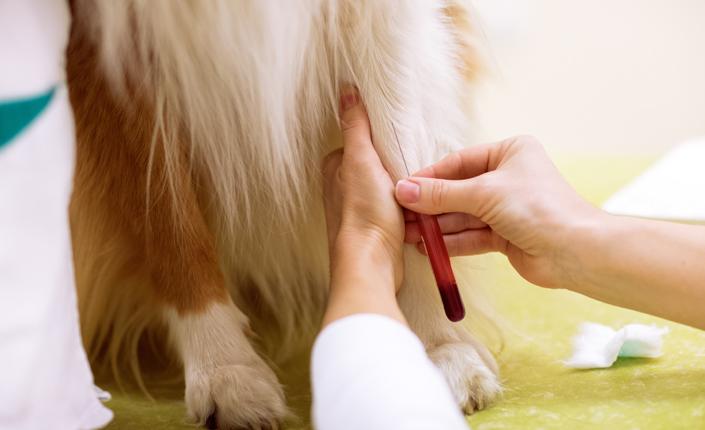
Wait...pets Can Donate Blood?
Yes, they can! Pets can be blood donors just like humans. Blood donations in the veterinary world are always in high demand. In fact, a pint of blood can save up to four lives! Sadly, there isn’t always enough blood to go around to treat the pets that so desperately need it.
For injured pets or those with an autoimmune disorder, a blood transfusion is the only option and can be lifesaving! That’s why many pet parents are signing their dogs and cats up to be blood donors. If your pet is deemed a good candidate, they could become a repeat donor up to four times a year.
There’s a lot to consider before you sign your pet up to be donor, so we’ve put together this brief outline of what you can expect with pet blood donation.
What pets make the best donors?
According to DogBloodDonations.com, the ideal donor is a “friendly, healthy, clinically normal animal that is not pregnant or has not produced a litter.” Plus, their vaccinations should be up to date and the pet should be infection free. Dogs that weigh 50 pounds or more are ideal donors, but some clinics will take smaller dogs too.
While there are fewer clinics that accept cat blood donations, they do exist! Indoor cats between the ages of two and seven that weigh more than 10 pounds can also donate.
Dogs with an easy breezy temperament are usually able to donate without sedation, making them the best candidates for pet blood donation. That being said, cats and anxious dogs can still donate if sedation is needed to collect enough blood.
Do pets have blood types?
You bet! Just like human donors, the blood types of the pet donor and pet recipient should match. For dogs, that means eight possible blood types. For cats, that means Type A or Type B.
What’s the procedure like?
Blood draws from dogs typically come from a large vein in the neck. Veterinarians say that the procedure is painless which is why many pets are repeat donors year after year. So, while you know that your pet is giving the gift of life, your pet will just be glad to see the friendly faces of the vet staff again. It’s a win-win! In the event that your pet does show signs of stress at any time during the blood draw, the procedure will be stopped immediately.
What happens next?
If you’ve ever donated blood before, you’ll remember that you’re offered a cookie or some other treat at the end along with a well-deserved rest. Pets are no different! Your pet will be given a small meal or other treats for a job well done. Some clinics may even reward your pet with a toy!
Okay. I think I’m ready to sign up!
If you think your dog or cat would make a good blood donor, take them to the vet for a check-up. The vet will make sure your pet is in good physical shape to make a proper donation (they may take a small blood sample to rule out any infections that would disqualify your pet from donating). A healthy pet isn’t likely to experience any risks associated with blood donation.
Interested in doing your part? Look online for local pet blood banks in your area or ask your vet if they accept donations. You can even have your pet join a list of donors and the Canadian Animal Blood Bank is always in need of more donor dogs and is a great resource to get you and your pooch started.
We hope this short guide has you feeling more confident about your options when it comes to pet blood donation. Now, your pet can save lives and become a real superhero!
